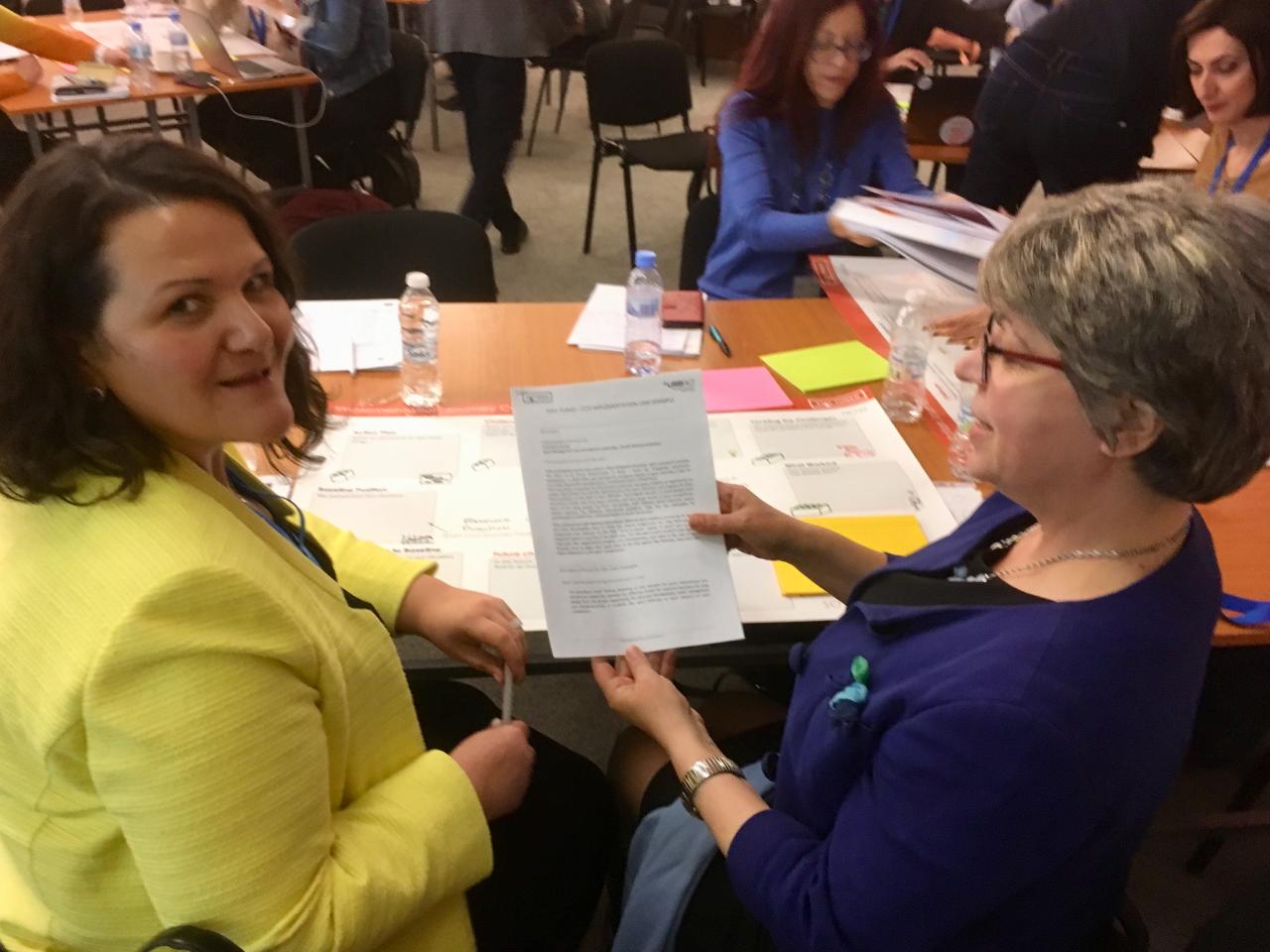
In February, the Stay Tuned partners held a transnational meeting in Sofia, Bulgaria. All partners provided insight into their projects tackling early leaving from education and training (ELET). It was also an opportunity to exchange ideas about operational implementation formats (OIF) and solutions.
A diversity in projects
All partner cities presented their projects. There was a variety in approach, but all had the same aim: reduce early leaving of education and training (ELET).
Nantes (FR) started from an educational action plan, involving as much stakeholders as possible –especially parents– over several districts in the city.
Aveiro (PT) focused on the teachers’ perspective, analysing their strategies to detect and tackle ‘problematic’ behaviour in the class room.
In Berlin (DE), a cooperation concerning labour, education and youth organisations was set up: the Jugendberufsagentur (JBA). JBA is based on dual learning (learning by practice), and is driven by volunteers in a dozen districts.
In 2018, Sofia (BG) was named Sports Capital of Europe. Here, sports were seen as an effective way to attract, engage and (re)integrate youngsters.
Barcelona (ES) created an educational guide for teachers in order to further stimulate and support their actions.
Tallinn (EE) founded a new model for detecting ELET at an early stage. It’s focused on reorienting and guiding youngsters to new learning perspectives, involving both parents and educators.
Involving parents was also a main goal in Ampelokipi Menemeni (GR). Their action plan was about extra attention for the Roma community, which has the highest rate of ELET.
The team from Gothenburg (SE) aspired to make school policy on absenteeism more proactive. They are making an application for detecting absenteeism at a very early stage.
At last, Ghent (BE), lead partner of Stay Tuned, developed a charter to take actions in schools, with the support of the educational centre of the city. This far, more than 20 schools have participated.
Topics of the final conference
From the common and different aspects of the various projects, six policy topics could be derived. Therefore, these six thematical workshops will be given at the conference in Ghent, on the 22th of May:
- (re)orienting, advising and guidance
- Building bridges to precarious groups, dealing with diversity
- Professionalising school teams, teachers’ perspectives and training
- Urban strategic planning, data collection
- Dual learning: the workplace as learning environment
- Absenteeism: preventing early school leaving at an early stage
With each partner city presenting their projects and their evaluations, the workshops will result in hints and tips on implementation and solutions to tackle ELET.
